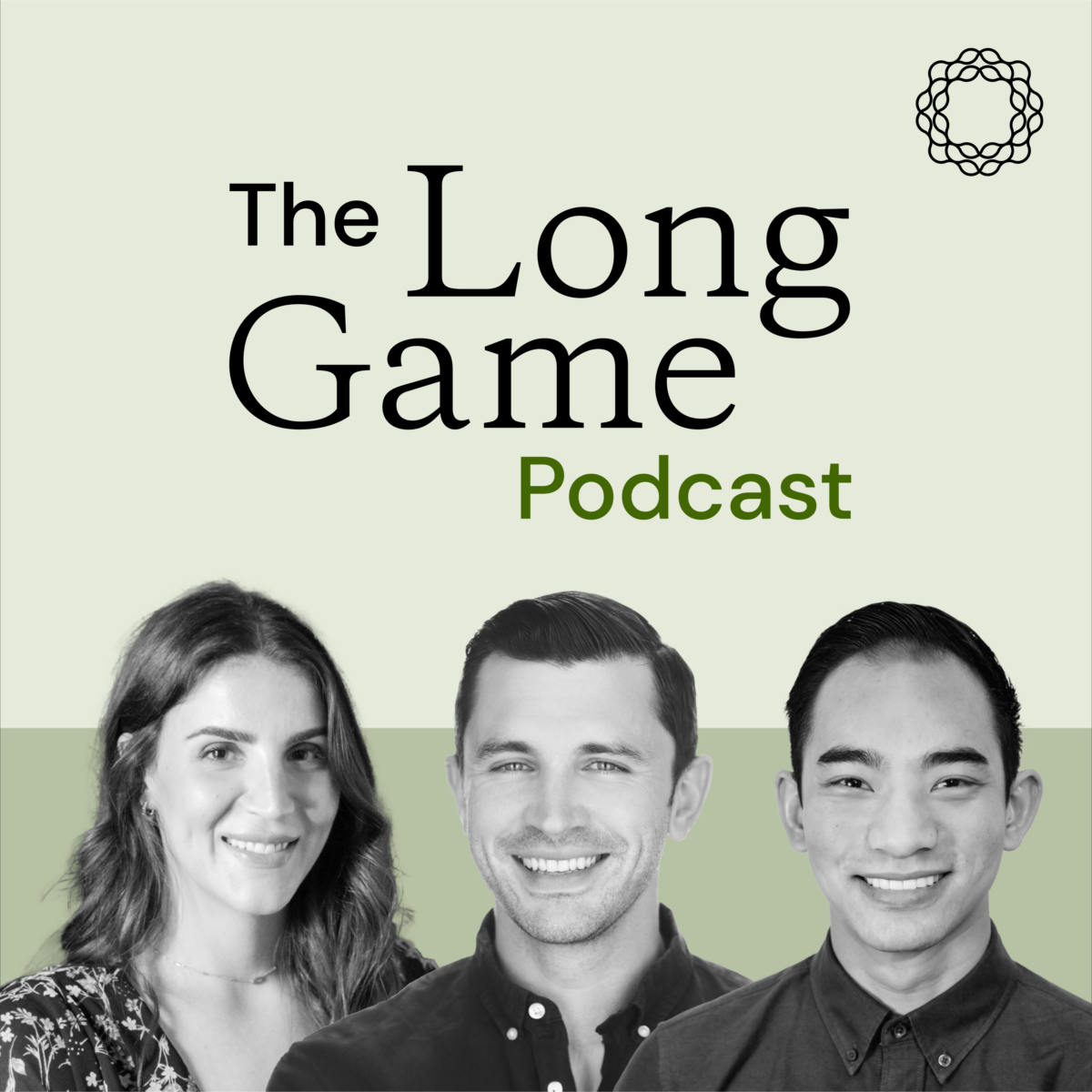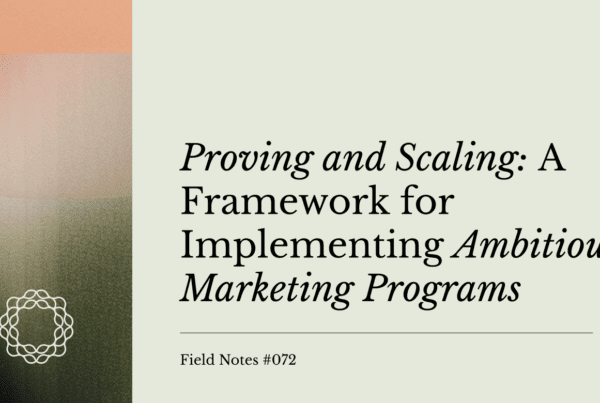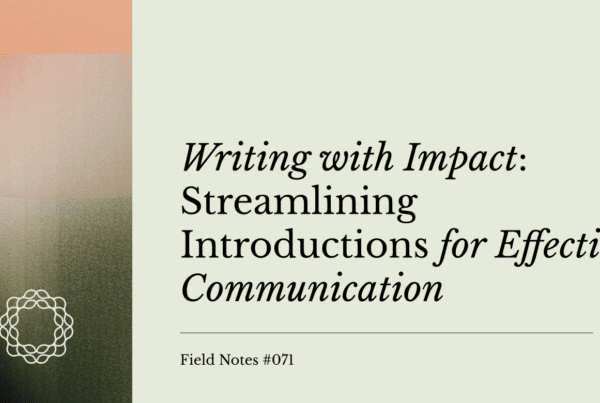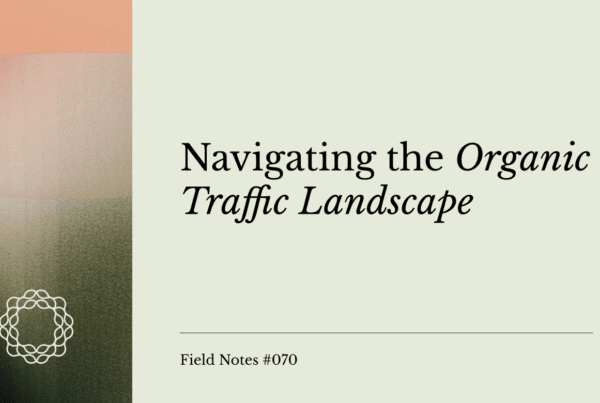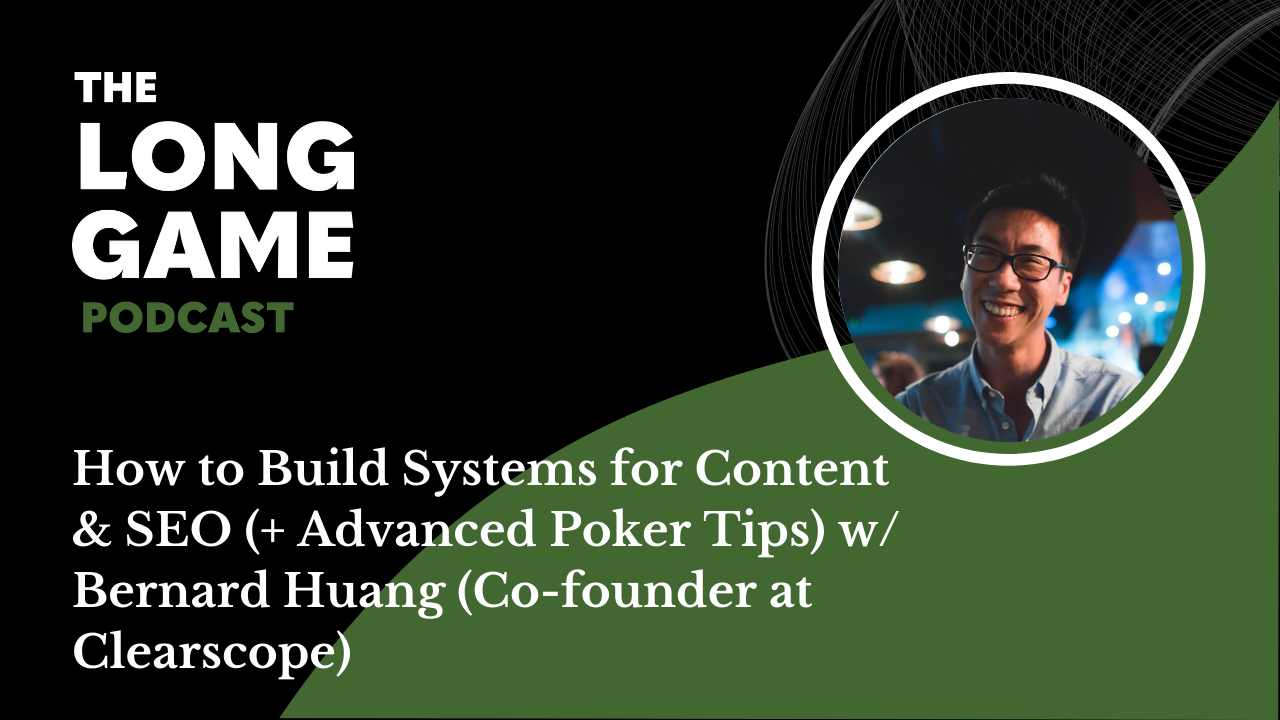
Is being an entrepreneur like playing a game of poker? Bernard Huang thinks so.
Bernard is the co-founder of Clearscope, an SEO content optimization platform that helps businesses rank with high quality content.
On this episode of The Long Game, he joined host Alex Birkett to discuss how being an entrepreneur is all about placing strategic bets, why learning a new skill always includes sucking at first, and the importance of finding your best fit customers.
If you’re starting a blog, you also won’t want to miss a discussion of the latest SEO developments and why following your passion is key.
- Connect with Bernard Huang on Twitter or LinkedIn
- Check out Clearscope
- Follow Clearscope on Twitter or LinkedIn
- Connect with Omniscient Digital on Twitter and LinkedIn
Listen to the podcast
Watch the video
Scan the show notes
04:32 – Running a business is like playing poker
Bernard plays poker and video games and compares betting on a business to betting on a game. He thinks they both come down to strategy.
“I think that there is a lot of similarities as well because the fundamentals of business are: product, market, business model, distribution. And of course you can tweak these knobs to your favor, to a certain degree. And I think breaking down the fundamentals of business into simple concepts that then you play is a very liberating feeling – or else it’s easy to drown in the infinite possibility, right? Or we could be doing this and we could be doing that and we could be allocating resources there. And it’s oftentimes paralyzing because you might go, well, there’s all of these things. How do I choose what is the right one? And then you start boiling it down to say, okay, well, customer acquisition costs have to be lower than lifetime value or else a business doesn’t work. And then you go, okay, well, what are the channels where we can test to see what customer acquisition costs are? And similarly, how those customers, what are their lifetime values in association with the channel and distribution? So I think that breaking it down and making it into a system is probably one of my biggest takeaways actually from poker. I talk about it from time to time, but the gist of poker is that people are not losing poker players, people employ losing systems in poker. And that is fundamentally how you improve at poker or now you could then extrapolate that and say at anything.”
18:13 – If you improve your content strategy, you improve your content
When brands focus on building their content strategy, other improvements follow.
“That’s kind of where I view this emerging idea of tackling zero search volume intent to be very compelling. It’s because we’re seeing very low domain authority websites punch above their weight, right? Ranking a lot higher for competitive queries that don’t make that much sense unless you really scrutinize it. And it’s like, ‘SEO is Dead’ as the title tag. It’s sort of this perspective-based piece and it does really well. Or things to consider before doing X and X having to be a very challenging subject matter, like training for a triathlon or starting a blog, or starting your own business. And by targeting that intent, then presumably we can rank faster, stronger, and better than not have to weigh as much in our domain authority. And then you quickly test that with five or 10 different pieces and say, okay, was that true? Or was that false? And then this is back to the idea of being a losing poker player, is that, people don’t suck at content. They just employ a losing content strategy.”
20:43 – You’re gonna suck at first
Whenever you take on a new project or skill, you’re going to fail a lot more than you succeed. That’s how it works. You have to keep going to see real results and determine if it’s right for you.
“When I approach anything new, I’m just like, okay, I’m going to suck at this for a really long time. And that’s part of the process. So just accepting that you’re going to suck at whatever it is that you do for a fair amount of time before coming to then understanding the true essence of what you’re doing is something that I think people who are skilled at learning have already just completely internalized. And I remember very distinctly when we were getting Clearscope off the ground, I, as the non-technical co-founder was tasked with customer development and finding new customers and talking to them, and it was a rough many, many months of just getting rejected, left and right. And one day after work, after being I guess told no a lot of times, I just remember going back to my apartment, I was like, man, this fucking sucks. But then I was like, okay, well,what about it sucks? And it’s like, say, okay, well, doing sales sucks. And I was like, okay, but why does doing sales suck? And then like, okay, maybe it’s because I suck at sales, maybe it’s because I actually don’t like doing sales or maybe it’s because I’m not finding success at sales, which I think is different than sucking at sales. It’s sort of like an outcome versus a skill or something like that.”
24:16 – Go to an expert to learn
When you’re learning a new skill or struggling with something, talking to an expert can often give you more insight than doing your own research.
“I feel like this is where, in my opinion, school fails you, is that for a lot of different personality types, they don’t really do a good job of hammering home the ‘why’ and whatever. There’s just no, don’t do that, period. And then it’s on a test. It’s like, should you do this? And you’re like, no no, false false. We should not do that. But it doesn’t really say like, okay, why should you do it? And so that’s I think what you should do. When I go out now to learn anything new, I go and I say, okay, there are a crap ton of things that I know that I don’t know about doing X and the best way that I found for myself, and this is going to vary from person to person, is to go out and ask the people who are perceived to be the best at X that I can get ahold of and say, Hey, you know, I just want 15-30 minutes to get your eyes and ears on X.”
34:30 – Balancing qualitative and quantitative
Clearscope used to be only a three-person team and Bernard had a lot of responsibilities. Now that they’ve added a couple team members, he spends more of his time thinking about branding and how their product feels.
“I think that it’s easy for me to get lost in the numbers, the ROI, the experimentation, whatever. But what’s been interesting to see play out is that really a lot of it is not in the numbers. A lot of it is in the qualitative, I guess, is the way that people would associate, is the anecdotal. And I’m really interested in understanding sort of why people enjoy Clearscope over a swarm of competitive tools that have entered the market and why we have such overwhelmingly positive feedback in comparison to other tools on the market, as far as I can tell from like competitive intelligence. So I’m way more interested in thinking through brand and also just understanding that it’s everything’s sort of like a butterfly effect, which is weird to say coming from somebody who was really deep in experimentation, A/B testing, statistical significance. It’s like, Oh, well, how does somebody feel about this?”
44:43 – Defining a true customer
Bernard is trying to narrow down who their best customer is by being truthful with potential clients about who will benefit from their service and who won’t.
“Really trying to understand who our customer is and who our customer is not. And people who are not our true customers, when they have feedback, when they come in and they just say I want to sign up, we’re not going to say, no you cannot sign up. We’re going to say, look, we don’t think it’s the best fit. And then we have to be wary to say, okay, those same bases of customers who are actually not going to be our true customers five years from now, they’re going to have feedback. There’ll be like Bernard we want the content to write itself. And then we have to look at that and say, well, no, I don’t think you’re like our true customer. You’re here because of the hype. I’m gonna wade through that noise and say, no, that’s not right. Like the true customer is this content strategist. And content strategists, you have a taste of that, they’re not going to say, yeah, I want the content to write itself. They’re gonna say, okay, how can I be more effective at choosing the right angle to position my content? How can I bring in the right structure and the right points?”
48:49 – Using pricing to qualify customers
Purposeful pricing can help to weed out the customers that would have been a bad fit down the line.
“We got a lot of downward pressure because people come in and they’re like, well, I hear amazing things about Clearscope, but simply out of my budget. And we are the most expensive tool within content optimization. But the flip side you can imagine is that we, say, offer a lower tier plan. And I’m not saying this is completely out of the question, but I’m saying that this is the flip side. And all of a sudden we get a large influx of bad fit customers. And bad fit customers are then going to try it on their local business and complain that it doesn’t work because it won’t really work for that. And that’s going to negatively influence our brand. So we look then at this $170 starter tier that we have. And so this is great because it disqualifies a bunch of really bad fits that are going to eat customer support time, my time, training them, all this like overhead and mental wellbeing. And that right is going to be an opportunity cost that could have been better spent in servicing our existing content strategists that we’re like, yes, these are Clearscope haulers for the long haul.”
01:00:23 – Following Google’s guiding principle
Clearscope focuses on what will help a user find the content they need – and throws out the rest.
“We have a pretty strong guiding framework of what we believe Google is striving towards, which ultimately, Google keeps saying. And it’s, ‘Oh, we’re just trying to help the user find what they need.’ So it’s like, okay, let’s take that, right. Help the user find what they need. And then that then guides our product decisions. Is domain authority going to help the user find what they need? So, I mean, in this current model and framework, it obviously plays a role. But in a farther future framework, maybe not at all, right. Domain authority, it doesn’t mean that’s what’s going to help the user find what they need. It’s still a signal that this is likely to help the user find what they need, but not completely the end path. So we sort of evaluate every decision on this internal guiding principle that Google keeps repeating. And we say, okay, is content that writes itself going to help the user find what they need? And then we look at the content that’s been AI generated. No, it’s really not. So this is not what ultimately is going to work. But then we’ll say, is monitoring the relevancy of your content over time going to help the user find what they need? And it’s like, yeah, certainly. So we’ve got to do something about content inventory monitoring, which we are certainly doing.”
1:10:19 – Blog about something you care about
If you’re starting a blog today, pick something that you’re passionate about and will post consistently on for the long haul instead of trying to game the system for money.
“If you were to start a blog, that’s why I’m like, yeah, you gotta be passionate about it. You gotta be in it for the long haul. Because I see a future algorithm, I don’t know how far down the line, but that basically is so good at figuring out what’s suspicious and what’s not right. I’m sure people listening here have Googled ‘best blah,’ and then presented with pages of junk that maybe you’re aware of, or maybe you’re not consciously aware of. It’s like pros, cons, stock images. This is junk. I think that stuff’s just going to die, some point in the future…And then in five years if you wanted to game the system, which is sort of identifying the newest hottest trend and kind of gaming the system, that stuff, those loopholes are shortening in cycle. And so when we think about SEO at Clearscope for ourselves, we think, okay, how are we going to provide unique perspectives on things happening in content, in SEO, that we find interesting? And perhaps that doesn’t get that much search volume right now, but if it’s a unique perspective that comes true, then it will.”
Connect with Omniscient Digital on social:
Twitter: @beomniscient
Linkedin: Be Omniscient
Listen to more episodes of The Long Game podcast here: https://beomniscient.com/podcast/
